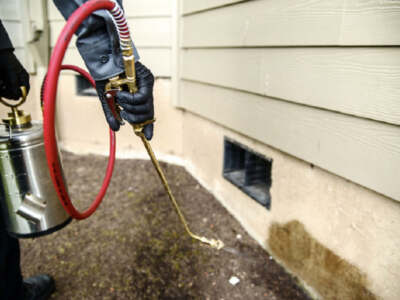Your health depends on the air quality you breathe to a great extent. That’s how many individuals are facing dire health issues and consequences for neglecting this aspect. Given its importance, everyone wants to improve air quality, thus avoiding possible sad fates. Unfortunately, some people use harmful substances, which worsens the situation. Avoiding such mistakes by not applying methods that do more harm than good would be best. This article is a must-read to help you improve air quality correctly. Read on to find out how to naturally improve air quality in your home.
Your cooking oil should smoke at relatively high temperatures.
If you notice that your kitchen often gets smoky when cooking, it is high time you reconsider the cooking oil you use. The worst part is this smell lingering in the air for hours after you finish cooking. That’s why you should use cooling oil with a relatively high smoke point. Examples are sunflower, corn, canola, safflower, peanut and avocado oil. Avoid using extra virgin olive oil and start using light olive oil instead for your desired olive oil taste. Besides the cooking oil, your cooking method shouldn’t jeopardize the air quality either. For example, avoid a wood-burning stove at all costs.
Handle mildew and mold resiliently.
It is a big deal, especially for people with breathing problems. Fortunately, it is as simple as emptying your window air conditioner and dehumidifier’s drip trays. It would be best to fix any water leakages to eliminate mildew and mold, thus improving the air quality.
Dust your home
Air pollutants such as pests, allergens, dirt and dust will accumulate in your home with time. So, they will compromise its air quality and increase the chances of respiratory problems arising among your family members. Therefore, regularly dusting your home is important thus avoiding this harmful accumulation. You can use a declutter, vacuum or damp rag; the best vacuums use a HEPA filter.
Ventilate the house thoroughly.
Did you know fresh air has fewer pollutants and more energy than indoor? That’s why you should allow more fresh air indoors to improve its air quality. Fortunately, it is quite simple since opening the windows and the doors is enough to ventilate your home adequately. Besides, open windows and doors control moisture levels, making them unfavorable for the growth of mildew and mold, thus further improving indoor air quality. As long as the weather isn’t extreme, it would help if you also opened them during winter.
Nevertheless, people allergic to certain air pollutants, such as pollen grains, manage the periods you open your windows and doors. They should be short and preferably when the allergens are low or absent. A weather app can also guide you on the most appropriate time to open them. It indicates the air quality of the area at any one point, thus allowing you to decide wisely.
Choose natural cleaning products.
Whereas cleaning improves air quality, your products could do more harm than good. They may contain toxic ingredients, thus worsening the bad situation. Only use cleaning products that are non-toxic, eco-friendly or green by checking the respective labels. Alternatively, make homemade cleaning products using essential oils, baking soda and vinegar, among other appropriate natural ingredients.
Add houseplants
Studies show that adding plants to your house can improve its air quality. They eliminate various chemicals in the indoor air, including carbon monoxide and formaldehyde. Notable plants effective in this include spider plants, Devil’s ivy, ferns and peace lilies. Complement this with other methods since it isn’t effective enough to significantly impact air quality.
Choose the paint wisely.
Paint will compromise air quality if high in VOCs or releases a smell. Therefore, avoid including harmful ingredients such as plastic, synthetic dyes, oil, ammonia, formaldehyde and acrylics. It is also advisable to use water-based paints instead of their water-based counterparts.
Use air purifiers
Using an air purifier, you can effectively eliminate pet dander, carbon dioxide, mold spores, smoke and VOCs. However, you will need to choose a great one for effective results. For instance, choosing one with a HEPA filter is advisable since it eliminates up to 99% of air pollutants. It may also remove flu virus particles, thus effective. If you aren’t sure, consult an expert such as HomeBuddy for an excellent choice. Besides, change the filters frequently to enhance their effectiveness.
Conclusion
It turns out that improving air quality isn’t hard. Many natural ways are available, thus sparing you from facing the dire consequences of using chemical substances. Remember that some unnatural ways worsen the situation, hence unworthy of your money, efforts and time. Besides, you don’t have to break the bank to improve the air quality of your indoors. On the contrary, some methods won’t cost you even a penny; an excellent example is opening your windows and doors. So, consider the above techniques to improve air quality in home and live healthily naturally.














Comments